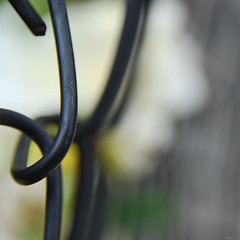 Satire 4 is a rewriting of the Satire 1 but in a much darker tone. It was written some few years later but it is also dealing with the unstable and full of rumour political climate of the Elizabethan court. It is also the longest and the most complex of the Donne’s Satires. With its complicated narrative and diverse strands of imagery the Satire is framed as a traditional meditatio mortis. Donne begins invoking death:
Satire 4 is a rewriting of the Satire 1 but in a much darker tone. It was written some few years later but it is also dealing with the unstable and full of rumour political climate of the Elizabethan court. It is also the longest and the most complex of the Donne’s Satires. With its complicated narrative and diverse strands of imagery the Satire is framed as a traditional meditatio mortis. Donne begins invoking death:
Well; I may now receive, and die; my sin
Indeed is great, but I have been in
A purgatory, such as feared hell is
A recreation, and scant map of this.
The satirist confesses that he committed a sin of going to ‘purgatory’ – to Court. The Satire serves as the last confession, preparing him to the Extreme Unction, wiping away all his sins and bringing him closer to salvation. It reveals the cathartic power of poetry, the last resort of cleaning one’s conscience. The Court is represented as purgatory, the place in between, where people come and go, either to hell or heaven. Significantly, the satirist compares the Court to the purgatory and not to hell, although later in the poem Donne poses a rhetorical question: ‘why is it hung with the seven deadly sins?’ It indicates that the poet does believe in the possibility of redemption for those at Court, like himself. In the Satire Donne takes the reader on a Dantesque tour of the purgatory. He paints it as more gruesome and fear imposing than the image of hell described by Dante. The ‘feared hell’ is just a ‘scant map’, a ‘recreation’ compare to the Court. At home the satirist recollects the scenes he witnessed at Court:
(…) in wholesome solitariness
My precious soul began, the wretchedness
Of suitors at Court to mourn, and a trance
Like his, who dreamed he saw hell, did advance
Itself on me, such men as he saw there,
I saw at Court, and worse, and more.
The circular mode of the Satire brings the satirist back to his chamber at the end of the poem. There, he wishes to ‘drown the sins of this place’ and ‘wash the stains away.’ In doing so Donne criticizes the negative freedom of doing as one pleases and endorses an ideal of positive freedom. He challenges his world by withdrawing from its social structures. He speaks out against the corruption and legal oppression of Court.
The satirist washes away his sins of entering Court by confessing them through the medium of the poem:
To wash the stains away; though I yet
With Maccabee’s modesty, the known merit
Of my work lessen: yet some wise man shall,
I hope, esteem my writs canonical.
The Satire, thus, is a canonical purgation, absolution received from the ‘wise man,’ the reader of the poem. Similarly to the beginning of the poem, through the finishing lines Donne seeks to receive, and to escape the purgatory of the known world.The "wise man" is someone like Donne who can be in the world but not of the world. It is someone who can preserve his or hers interiority and moral guidance. The ‘wise man’ is someone whose integrity serves as a guide and norm in a world where corruption and moral degradation prevail.




